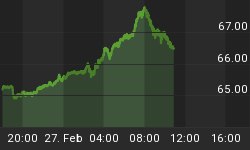After a disappointing Thanksgiving, the U.S. retail sector has roared back to life with holiday sales taking out new records. A fresh report by Mastercard SpendingPulse shows that holiday retail sales grew 8.5%Y/Y, with online sales accounting for 20.9% of total sales. MasterCard has not provided dollar figures for sales numbers, but an earlier report by the National Retail Federation (NRF) said that U.S. holiday sales remain on track to set new records with sales expected to clock in at $835 billion to $859 billion.
And it’s now emerging that one futuristic consumer gadget has become one of the most popular holiday gifts: VR headsets.
A number of VR developers have reported that 2021 is the best holiday season for the industry on record, specifically for Facebook parent Meta Platform’s (NASDAQ:FB) top-of-the-range Quest 2 headset.
New installations of the Oculus mobile app jumped more than 150% over the holiday weekend, with over 650,000 people grabbing the software between December 24 to 26. Before Christmas, the Oculus app ranked as a top 10 iOS entertainment app only in the U.S., but jumped to the top ranked overall app in the U.S.on Christmas while also hitting the top five in the entertainment app category in 14 countries.
FB’s Oculus is not the only winner here. The free social VR app Rec Room also saw record numbers over the Christmas weekend, with over 1 million VR players logging into the experience over a 60 hour period. Meanwhile, Hand Physics Lab developer Dennys Kuhnert says sales of the app have been “unprecedented.”
The Metaverse Unleashed
Meta Platforms will be delighted by its VR headsets flying off shelves considering that earlier this year, Meta’s CEO Mark Zuckerberg announced plans to invest $10 billion to build its metaverse, a virtual world he aims to make the standard for social networking, gaming, and work.
As with most new or newish technologies, there’s no concise definition of the metaverse at the moment, but it can include virtual reality--characterized by persistent virtual worlds that continue to exist even when you're not playing–as well as augmented reality that combines aspects of the digital and physical worlds. However, metaverse doesn't require that those spaces be exclusively accessed via VR or AR.
According to Morgan Stanley, the metaverse is a concept that includes the construction of an alternate universe where individuals can model their image to whatever they want to be, and perform real-life tasks such as buying things, gaming with friends, and other activities.
Meanwhile, Matt Maximo, research analyst at Grayscale Investments, has told GOBankingRates that the metaverse, “is how we interact with each other digitally and it’s about making digital interactions to be more authentic. The metaverse is an attempt to rebuild the social digital services--video calls, gaming, social media, etc. into experiences that flow seamlessly with the physical world.”
The metaverse also translates to a digital economy, where users can create, buy, and sell goods. In effect, the metaverse is interoperable, allowing you to take virtual items like clothes or cars from one platform to another. In the real world, you can buy a shirt from the mall and then wear it to a movie theater.
Currently, most platforms have virtual identities, avatars, and inventories that are tied to just one platform; however, a metaverse might allow you to create a persona that you can take everywhere just as easily.
According to Maximo, there are two main concepts in the metaverse world for investors: infrastructure and games themselves:
“So, we look at two pieces of the puzzle: the games that have blockchain compatibility through NFTs and tokens and the protocols providing infrastructure for game developers to build blockchain-compatible games,” Maximo has explained.
The Metaverse Investment Opportunities
On the business end of things, the entire metaverse market cap is currently estimated at nearly $37 billion.
Grayscale launched its Decentraland Trust (MANA) in February that solely focuses on the MANA cryptocurrency, thus enabling investors to gain exposure to MANA in the form of a security while also avoiding the challenges of buying, storing and safekeeping MANA directly. MANA is a metaverse that's built on top of the Ethereum blockchain, and has exploded 6,000% across this year’s trading, with some experts saying it’s just getting started.
Meanwhile, Maximo says the play-to-earn gaming tokens is another theme that presents a prime opportunity for investors:
“This trend is capturing the gamers who want to own the value of their time spent in-game and has become immensely popular with people in developing countries like the Philippines and Venezuela. These players are often able to earn higher wages playing these games than through traditional or even government jobs.”
















